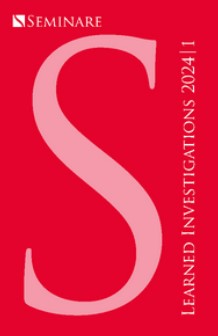Cristo Rey Schools and the Preferential Option for the Poor
Cristo Rey Schools and the Preferential Option for the Poor
Author(s): Julie Robinson, Pauline Cooney, Stephen McKinneySubject(s): Christian Theology and Religion, Biblical studies, Other Christian Denominations, Sociology of Education, Sociology of Religion
Published by: Towarzystwo Naukowe Franciszka Salezego (TNFS)
Keywords: Cristo Rey; America; Jesuit education; preferential option for the poor; pope Francis;
Summary/Abstract: Cristo Rey schools are a unique and distinctive form of Jesuit education. They have been very successful since the mid 1990s and are deemed to be coherent with Jesuit educational principles and the preferential option for the poor. They are only available to young people from low-income homes and are open to young people of all faiths and none. The Cristo Rey schools offer an intense and supportive environment for the students and prepare them for admission to college and university. Nevertheless, there are critiques of these schools that focus on: the financial model that means that the students must work one day a week; the nature of this work and questions about the ethical perspectives of the employers. There are further questions about cultural dissonance between the students and staff of the schools. This article explores the socio-logical and theological foundations of the Cristo Ray schools, evaluates their effectiveness and success and analyses the various points that are raised in the critique of these schools.
Journal: Seminare. Poszukiwania naukowe
- Issue Year: 45/2024
- Issue No: 1
- Page Range: 167-178
- Page Count: 12
- Language: English

